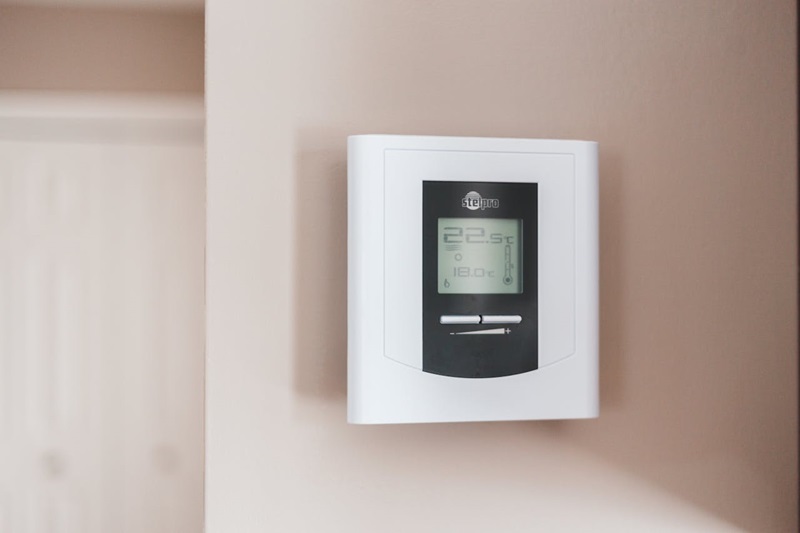Have you ever found yourself overwhelmed by the wide array of heating and cooling options developed with energy efficiency in mind? Have you ever spent hours considering which is the right choice for your needs? Or maybe you’re simply curious about how these systems work and why it’s important to choose ones that promote energy efficiency? You’ve landed in the right place – this post aims to unravel all these questions on energy efficient heating and cooling systems for you.
In this exploration, we delve into numerous facets of improving your home’s energy efficiency by making intelligent choices about your heating and cooling systems. Why? Because managing home-energy usage has become a significant aspect in our steps towards sustainability – not only is it environmentally considerate, but it also lessens the weight on our wallets.
This comprehensive guide aims to equip you with the knowledge you need to make informed decisions about your home’s heating and cooling systems. We’ll traverse topics like the types of energy-efficient systems and their benefits and how to choose and maintain these systems for optimal use.
Understanding Energy-Efficient Heating & Cooling Systems
Why should homeowners consider the shift towards energy-efficient models? Simply put, such systems use less energy than their traditional counterparts. Less energy consumption equals lower energy bills and a reduced carbon footprint. It’s a winning scenario on both the environmental and financial fronts.
The next question that invariably comes up is, what qualifies a system as energy-efficient? Well, a standard measure is its Seasonal Energy Efficiency Ratio (SEER) and Heating Seasonal Performance Factor (HSPF). A high SEER rating indicates higher efficiency.
Energy-efficient systems include heat pumps, energy recovery ventilators, and ductless mini-split systems. Each of these has its own set of benefits and usages, but they all work on the same fundamental principle – they promote more effective and efficient heating and cooling capabilities.
Benefits of Energy-Efficient Systems
Who wouldn’t love to see their energy bills reduced significantly? That’s one of the primary benefits of energy-efficient systems. They also result in reduced greenhouse gas emissions that are detrimental to our environment.
They are designed to provide a higher comfort level at home as well. With advanced technology, these systems provide uniform heating and cooling and better humidity control.
Moreover, these systems are often quieter, reducing noise pollution inside your home. They operate on minimal energy, which usually implies longer lifespans, and they maintain optimal performance for a considerable length of time.
Installation and Maintenance
Installing energy-efficient systems might seem pricey up-front compared to traditional options, but when you consider the long-term savings on energy bills, the benefits outweigh the initial costs.
Selecting a qualified technician plays an integral part in the installation process. A quality installation will guarantee that the system operates at maximum efficiency.
Maintenance of these systems requires regular check-ups and cleaning. Insulating your home properly also helps in retaining the heat or coolness, thereby maximizing efficiency.
The Potential Drawbacks
While the benefits of energy-efficient systems are plenty, a few potential downsides are worth considering. The initial product and installation cost can be substantially higher than traditional models. There may also be some disruption during the installation process.
The complex technology in energy-efficient systems might require specialist maintenance at times. Also, improper installation can lead to inefficiency, which is why choosing an experienced technician is paramount.
A Path towards Sustainable Living
At a time when climate change is a significant concern, it is incumbent upon us to be more environmentally responsible. Household energy consumption forms a substantial chunk of greenhouse gas emissions, and heating and cooling are key contributors to this.
Efficient heating and cooling systems are not just about lowering your energy bills; they signify a broader commitment to adopting greener practices and leaving a lighter carbon footprint.
Conclusion
Choosing energy-efficient heating and cooling systems for your home is no small decision. It’s driven by factors far beyond mere monetary savings. It’s about creating a comfortable, healthier environment for you and your loved ones, reducing your carbon footprint, and contributing to a more sustainable and responsible lifestyle.
This comprehensive guide aims to empower you to make this critical choice with confidence. Ultimately, the right heating and cooling system for you will balance upfront costs with long-term energy savings and contribute to a greener future for us all. And that is surely a win-win situation for both the homeowner and the environment.
In the grand scheme of things, energy-efficient heating and cooling systems are simply one of the many steps towards a truly sustainable lifestyle. Every small step like this adds up, bringing us one step closer to a healthier, greener world.
